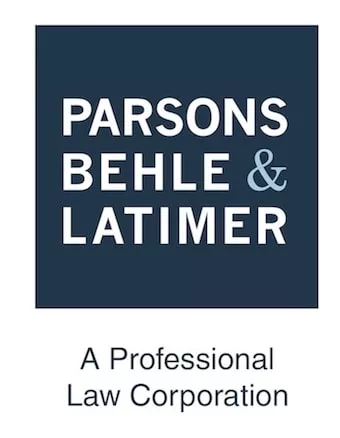The pandemic has changed our lives in many ways. For some of us, it has even changed how we provide pro bono services to our community. The Utah Bar's Virtual Legal Clinic is a prime example of how we, as lawyers, have adapted our practices to continue to provide—and, in this case, improve—legal services to others, and pro bono work is no different.
Formally known as "Tuesday Night Bar," the Virtual Legal Clinic is a free service created by the Access to Justice Commission that connects community members with a volunteer attorney for a free 30-minute virtual consultation. The five most requested consultation areas are for family law, landlord tenant, criminal law, employment law, and debt collection issues. In addition to these core areas, the Virtual Legal Clinic provides pro bono advice in over 20 additional fields, including consumer rights, LGBTQ rights, name changes, personal injury, small claims, and advice for social and employment benefit issues. Thanks to the 21 multi-lingual attorneys that volunteered this past year, the Virtual Legal Clinic has been able to provide consultations in 11 different languages, including Spanish, French, Portuguese, Russian, and Mandarin. Consultations are offered to all community members, regardless of individual circumstances, and the consultation is always free.
Unlike Tuesday Night Bar—the longstanding program which has been held (you guessed it) on Tuesday Nights at the Bar building for years—the Virtual Legal Clinic has brought these same legal services online. Today, the Virtual Legal Clinic matches community participants from all over Utah (not just those who can travel downtown on Tuesday evenings) with an attorney practicing in their specific area of need (rather than the practice areas of the volunteer attorneys that happen to be staffing that particular evening). Since switching to the virtual format, the clinic has been able to expand its reach and provide pro bono legal services to more clients than ever before.
In 2021, 1,087 participants were matched with a lawyer, a nearly 25% increase from Tuesday Night Bar's pre-pandemic numbers. An additional 119 individuals seeking aid were referred directly to other legal clinics better suited to serve their needs (including BYU's Community Legal Clinic, the University of Utah's Pro Bono Initiative, Timpanogos Legal Center, and People's Legal Aid).
In addition to the increased flexibility for participants (particularly those whose reside outside of Salt Lake County), moving the clinic online has increased attorney staffing levels by allowing attorneys to volunteer on their own schedule. Alex Vandiver, one of the most active volunteers for the Virtual Legal Clinic, described her experience as follows:
Once or twice a month, I get an email from the Utah State Bar assigning me a client. The email will include some information about the client's contact information and the client's legal question. The client may include the best timeframe to contact them. It is then up to me to contact the client to provide a one-time brief legal advice, for about 20-30 minutes, within the next three business days. It is an incredibly easy way to volunteer!
Most of the time, the call with the client does not take the full 30 minutes. The questions tend to be short and easy (and this is coming from a new attorney!). Once in a blue moon, a call can take a little longer than 30 minutes, but I have never gone over an hour with a client. My longest call was, in fact, an hour long with a very pleasant gentleman who wanted to understand basic elements of a contractual agreement. Throughout the call, the gentleman (unnecessarily but persistently) apologized for taking so much of my time and thanked me for the help that I was providing him.
Regardless of how long the call is, the clients are always very appreciative of the advice that I provide them. Many are in a bind and do not know what their options are. So, giving them the advice and/or pointing them to the right resources is a huge help and relief to them. This is also an incredibly rewarding experience for me as it provides me an opportunity to practice my lawyering skills, network with other attorneys, and decompress from my daily workload.
The Virtual Legal Clinic is made possible through the diligent efforts of Pamela Beates, the Utah Bar Access to Justice Director; Nicole Dumas, the Access to Justice Manager; the Access to Justice Commission; and the more than 70 attorney volunteers who donated their time to this worthy cause last year. The service provided by each of these hard-working attorneys is recognized in each edition of the Utah Bar Journal. The Virtual Legal Clinic is always looking for more attorneys to volunteer their time and expertise. If you were looking for a sign to volunteer, let this article be it! "The Virtual Legal Clinic is a great resource for community members as well as for us as attorneys," said Alex Vandiver, noting that the clinic has allowed her to network with other attorneys while counseling on subject areas she might not be well-versed in as a new attorney, allowing her to gain greater perspective and appreciation for her legal studies.
For those who would like to get involved, please sign up using the Virtual Legal Clinic Sign Up Form at www.utahlegalhelp.org/VLC. The clinic has a particular need for Spanish speaking volunteers as well as attorneys versed in general civil litigation, civil rights, criminal law, family law, and landlord tenant issues.
Originally Published in Mar/Apr issue of the Utah Bar Journal and co-authored with Christopher Bond, Attorney at Manning, Curtis, Bradshaw & Bednar.
The content of this article is intended to provide a general guide to the subject matter. Specialist advice should be sought about your specific circumstances.

